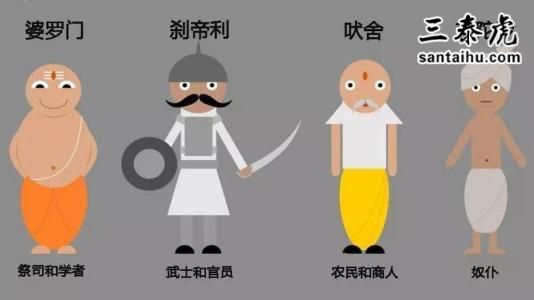Tanya M. Somani, Indians have quite some tolerance to torture.
Well! I'd quote the most recent example that caught my eye.
So the incumbent Bihar CM (Jeetan Ram Manjhi) happens to be a scheduled caste. He visited a temple in Madhubani where his presence was not really appreciated because of his caste. The entire temple was apparently 'cleansed' (the temple and idols were washed) after Manjhi had left.
This incident left me baffled as to what extent can we fall just in the name of caste! A holy abode needs no such discrimination whatsoever. Secondly, Majhi being the CM did not raise voice at all. With his position he could have tried to make a change (or atleast raised the issue) which he clearly avoided. This attitude is what makes the caste system in India a vicious circle.
Most people don't want to change and people who can bring a change don't work towards bringing that change.
好!我要引用最近一个引起我注意的例子。
因此,现任的比哈尔邦首席部长 (Jeetan Ram Manjhi)就是表内种姓。他参观了马德胡巴尼的一座寺庙,在那里他的存在因为他的种姓并没有得到真正的重视。很明显,曼希离开后,整个寺庙都被“清洗”了(寺庙和神像都被清洗了)。
这件事让我困惑,我们以种姓的名义到底能有多堕落!一个神圣的住所不需要任何歧视。其次,Majhi作为首席部长根本没有发声。以他的立场,他本可以试图做一点改变(或至少提出这个问题)。正是这种态度使得印度的种姓制度陷入恶性循环。
大多数人都不想改变,那些能带来改变的人也不会努力去改变。
Rajat Singh, An inquisitive, complex being with simple thoughts!!
Lets understand what is the caste system. It was a system where, where people of doing different types of work were divided into different categories, based on their skill sets. All had their own significance in the society back then, and the functioning of the society would be impaired without any one of them. They all were intelligent, only the area they used it was different. Even a cobbler required high skill and knowledge, as much as a warrior required in war strategy.
让我们先了解一下种姓制度是什么。这是一个系统,从事不同工作的人根据技能被分成不同的类别。这一切在当时的社会中都有其自身的意义,如果缺了任何一个,社会的功能就会受到损害。他们都很聪明,只是使用的领域不同。就连鞋匠也需要高超的技术和知识,就像一个战士在战争中需要的一样。
Anjali Sharma, Serendipity!
Caste system exsts in the following ways in 21st century as well:
种姓制度在21世纪也以以下方式存在:
- Profession
Though practice of cast based profession has reduced significantly but people(even in some suburbs) still don't eat in the same utensils as their servants.
- 专业
虽然基于种姓的职业已经显著减少,但是人们(甚至在一些郊区)仍然不与他们的仆人共用餐具。
- Reservation
This is a fancy word they use now a days to wrap caste system. You fill a form for anything they'll ask you your caste. This one is a very controversial topic but lets just say this has harmed aspirations of many people.
- 预留制
这是他们现在用来包装种姓制度的一个花哨的词。你填写一张表格,里面尽是他们对你种姓的提问。这是一个非常有争议的话题,但要我们说,这阻扰了许多人的志向。
- Rituals and Culture
Even though Article 15 of the Constitution of India prohibits discrimination based on caste and Article 17 declared the practice of untouchability to be illegal people practice age old customs and rituals based on caste. As stated by Balaji Viswanathan the dressing also varies from caste to caste.
- 仪式和文化
尽管《印度宪法》第15条禁止对种姓的歧视,第17条也宣布贱民延袭种姓基础古老的仪式和文化的做法是非法的,但人们仍然按照种姓实行古老的习俗和仪式。正如巴拉吉·维斯瓦纳桑提到的,着装也因种姓而异。
- Regionalism
The caste system is now getting replaced by discrimination based on region. I read this news peice today.
Manipuri student leader attacked in Bangalore, told speak in Kannada - Hindustan Times
This is just one example.
- 地方主义
种姓制度现在正被基于地方的歧视所取代。我今天看了这个新闻:
曼尼普里学生领袖在班加罗尔遭到袭击—印度时报
这只是一个例子。
The Supreme Court of India ruled in 2007 that social organisation based on caste is inherited and cannot be changed. The sad reality is that this system is widespread and is present in most of the religions. Even though people have changed and their thinking has evolved with time, the caste system still has its roots in some places and it might not go completely but has reduced evidently.
2007年,印度最高法院裁定,基于种姓的社会团体是继承而来的,不能改变。可悲的现实是,这种制度广泛存在于大多数宗教中。尽管人们已经改变了,他们的思维也随着时间的推移而进化,但种姓制度仍然在一些地方扎根,它可能不会完全消失,但已经明显减少。

Ayush Bajpai, India first. Always.
How do caste system "work" in the 21st century?
There was a time when our protagonist Casteism was on the height of its might and that too for a long time.
It roamed in the vast fields of the India like a king. Being happy, seeing how its kingdom prospered.
No one knew where it came from and how far does it go, but it was mentioned even in our mythology too.
And just when he thought, that his fort was far too strong, some people rose, wind blows and silences a little bit of its loud song.
种姓制度在21世纪是如何“发挥效力”的?
曾经有一段时间,我们的社会种姓制度处于鼎盛时期,而且在很长一段时间里也是如此。
它像国王一样在印度广袤的田野里漫步。看见自己的国家如此兴旺而欢喜不已。
没有人知道它从哪里来,走了多远,但它在我们的神话中也出现过。
正当他想,他的堡垒实在太坚固时,一些人站了起来,让他响亮的歌声逊色了些。
Today, it is crippled and weak,
discrimination, politics and appeasement policies are, what it seeks.
Arrogance lift it for day or two and apart from it he got other friends too, one day politics bring him some food and other day misplaced civic sense. Sometimes it get desperate, any other time immense.
So, TODAY, it is sitting, watching, for every moment, he can act upon, to rebuild, to spread, which is now lost.
And although it gets successful, atleast once in a every full moon,
If we stop feeding it ourselves, it'll too die soon.
今天,它残废虚弱,
它所寻求的是歧视、政治和绥靖政策。
傲慢的态度让他迅速膨胀,除此之外,他还结交了其他朋友,后来政治给他带来了些食物,再后来他失去了公民意识。有时它变得绝望,而其他任何时候很不错。
此文由 三泰虎 编辑,未经允许不得转载!:首页 > 印度 » 实际生活中,印度种姓制度在21世纪是如何发挥效力的

 印度空军重新调整现代化计划,推动“印度制造”
印度空军重新调整现代化计划,推动“印度制造” 印度新冠肺炎确诊病例突破10万例,死亡病例超过3000例
印度新冠肺炎确诊病例突破10万例,死亡病例超过3000例 印度财政部长:可以通过多种形式把钱发到人们手中
印度财政部长:可以通过多种形式把钱发到人们手中 印度食品部宣布:15天内向8000万民工发放免费口粮
印度食品部宣布:15天内向8000万民工发放免费口粮 印度开展药品外交,向拉美及加勒比海国家、非洲国家伸出援助之手
印度开展药品外交,向拉美及加勒比海国家、非洲国家伸出援助之手 你认为印度现在最需要什么
你认为印度现在最需要什么 印度北方邦卡车事故造成26名民工死亡,36人受伤
印度北方邦卡车事故造成26名民工死亡,36人受伤 印度北方邦两卡车相撞,致23名民工死亡
印度北方邦两卡车相撞,致23名民工死亡